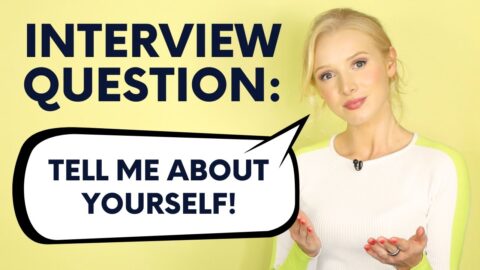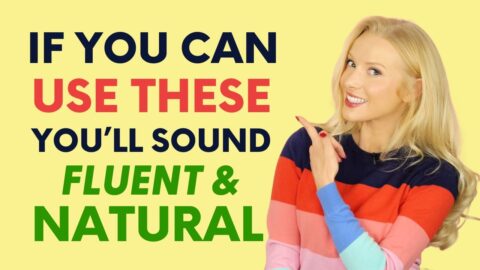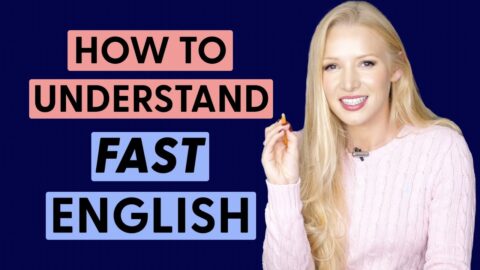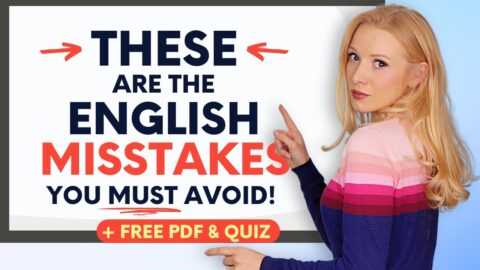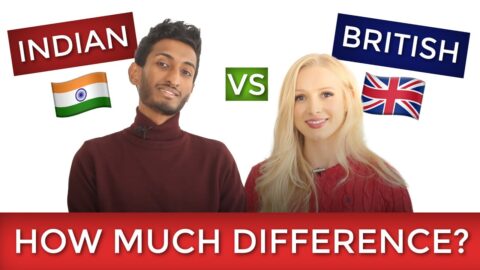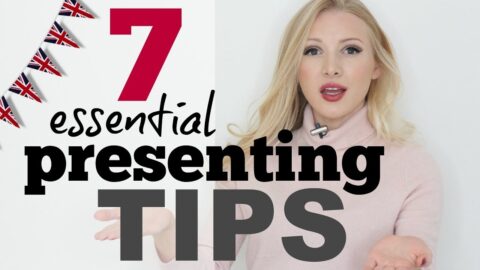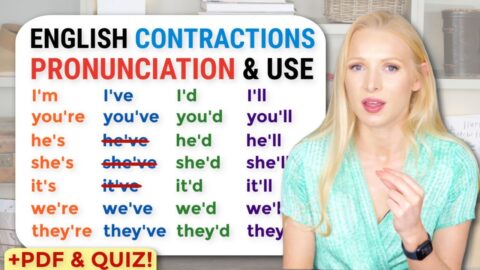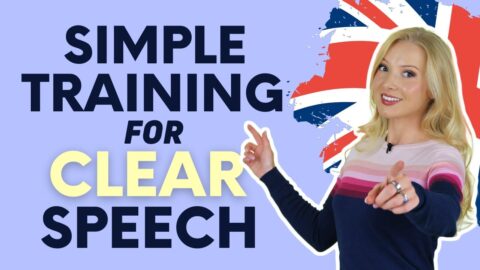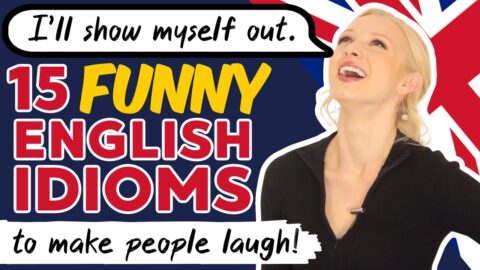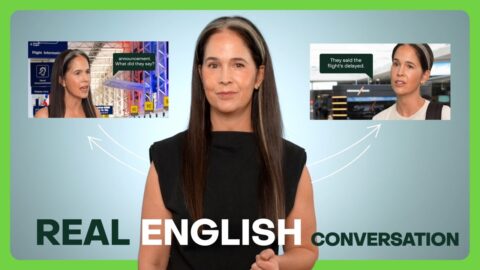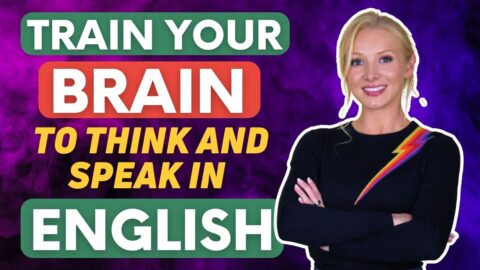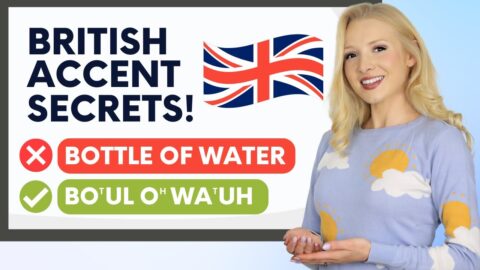Hello everyone and welcome back to English with Lucy.
Olá a todos e bem-vindos de volta ao inglês com Lucy.
Do you ever feel confused, when you hear or see
Você já se sentiu confuso quando ouve ou vê
phrases like gimme, hafta,
frases como me dê, hafta,
lotsa, sorta,
muito, mais ou menos,
typa, frunna, what do these all mean?
typa, frunna, o que tudo isso significa?
Well, they are quite a few to learn ,
Bem, são muitas para aprender,
they are reductions, or reduced words,
são reduções, ou palavras reduzidas,
and you do need to know these words,
e você precisa conhecer essas palavras,
in order to understand natural conversation
para entender a conversa natural
and you might want to use these words
e você pode querer usar essas palavras
if you want to sound more like
se você quiser soar mais como
a native speaker when you talk.
um falante nativo quando você fala.
Before we get started, I would just like to thank
Antes de começarmos, gostaria apenas de agradecer
the sponsor of today's video, it is Skill Share.
o patrocinador do vídeo de hoje é o Skill Share.
Skill Share is an online learning community,
Skill Share é uma comunidade de aprendizagem online,
with classes designed for real life.
com aulas projetadas para a vida real.
So you can move forward with your learning journey
Para que você possa seguir em frente com sua jornada de aprendizagem
without putting your life on hold.
sem colocar sua vida em espera.
You can learn and grow with short classes,
Você pode aprender e crescer com aulas curtas,
that fit around your busy routine.
que se adaptam à sua rotina agitada.
They offer lots of language-related classes
Eles oferecem muitas aulas relacionadas ao idioma
which I know you'll love.
que eu sei que você vai adorar.
Things like grammar and vocabulary,
Coisas como gramática e vocabulário,
but also more specific things like customer service
mas também coisas mais específicas como atendimento ao cliente
and interview preparation.
e preparação para entrevistas.
But they also have many other classes that will assist you
Mas eles também têm muitas outras aulas que irão ajudá-lo
on your creative journey,
em sua jornada criativa,
or help you starting a new business.
ou ajudá-lo a iniciar um novo negócio.
Classes on logo design, web development,
Aulas sobre design de logotipo, desenvolvimento web,
productivity, just to name a few.
produtividade, só para citar alguns.
I'm doing a class on iPhone photography,
Estou dando uma aula sobre fotografia com iPhone,
by the teacher Dell McManus,
pelo professor Dell McManus,
because I want to up my Instagram game.
porque quero melhorar meu desempenho no Instagram.
I use a lot of photographers, but I know that my phone
Eu uso muitos fotógrafos, mas sei que meu telefone
has so much potential, and I want to harness that.
tem tanto potencial e eu quero aproveitar isso.
He covers so many topics
Ele aborda tantos tópicos
that I've never even considered before
que eu nunca tinha considerado antes
like dead space, and the rule of thirds.
como espaço morto e a regra dos terços.
Skill Share is also incredibly affordable,
O Skill Share também é incrivelmente acessível,
especially when compared to expensive
especialmente quando comparado a caro
in-person workshops or classes.
workshops ou aulas presenciais.
An annual subscription is less than 10 dollars, per month.
Uma assinatura anual custa menos de 10 dólares por mês.
And I will let you know that the first 500 of my subscribers
E eu vou deixar você saber que os primeiros 500 dos meus assinantes
to click the link in the subscription box
para clicar no link na caixa de assinatura
will get a two month free trial of premium memberships.
receberá um teste gratuito de dois meses de assinaturas premium.
You can all go and explore your creativity.
Vocês podem explorar sua criatividade.
Right, let's get started with the lesson.
Certo, vamos começar a lição.
So reductions, what are they?
Então, o que são reduções?
They are reduced forms of words.
São formas reduzidas de palavras.
Normally two words, occasionally three words.
Normalmente duas palavras, ocasionalmente três palavras.
For example, the reduction, gimme,
Por exemplo, a redução, me dê,
is actually give plus me.
é na verdade dar mais para mim.
Gimme.
Me dá.
For example, gimme that pen.
Por exemplo, me dê aquela caneta.
Gimme that pen.
Me dá essa caneta.
Give me that pen.
Me dê essa caneta.
You will find that there are some commonly used words
Você descobrirá que existem algumas palavras comumente usadas
that are often included in reductions.
que geralmente são incluídos nas reduções.
Me being one of them.
Eu sendo um deles.
Another example of reduction including me, is lemme.
Outro exemplo de redução, incluindo eu, é lemme.
Lemme.
Deixa eu te contar.
For example, lemme come with you.
Por exemplo, deixe-me ir com você.
Lemme come with you.
Deixe-me ir com você.
Let me come with you.
Deixe-me ir com você.
Now you must never
Agora você nunca deve
use these in formal situations, or formal writing tasks,
use-os em situações formais ou tarefas formais de escrita,
especially don't use these in exams,
especialmente não use isso em exames,
unless you are specifically asked to use reductions
a menos que você seja especificamente solicitado a usar reduções
or slang language.
ou gíria.
I would say that the most important part of this,
Eu diria que a parte mais importante disto,
is that you understand them so that if a native speaker
é que você os entenda para que, se um falante nativo
uses one with you, you can understand and respond,
usa um com você, você pode entender e responder,
but if you are looking to sound like a native speaker,
mas se você quer soar como um falante nativo,
then you might want to practise these.
então você pode querer praticar isso.
Now let's move on to the second set of reductions
Agora vamos passar para o segundo conjunto de reduções
which is what plus is plus word.
que é o que mais é mais palavra.
The first one is, what is up.
A primeira é: o que está acontecendo?
What is up.
O que se passa.
What do we say?
O que dizemos?
We say wassup.
Nós dizemos "e aí?".
Wassup.
E aí?
Wassup with that?
O que aconteceu com isso?
What is up with that?
O que está acontecendo com isso?
Another one is what is her, what is her?
Outra é o que é ela, o que é ela?
We reduce this to whatser, whatser.
Reduzimos isso a qualquer coisa, qualquer coisa.
For example, whatser name again ?
Por exemplo, qual é o nome mesmo?
What's her name again?
Qual é mesmo o nome dela?
That is something that I would genuinely say,
Isso é algo que eu diria sinceramente,
in an informal situation,
em uma situação informal,
however it would be unlikely to write this down.
no entanto, seria improvável que escrevesse isso.
I would just use this in spoken informal speech.
Eu usaria isso apenas em discurso informal falado.
Spoken speech, obviously.
Discurso falado, obviamente.
The masculine form of this, whatsis.
A forma masculina disso, whatsis.
Whatsis.
O que é isso?
What is his?
Qual é o dele?
Whatsis phone number?
Qual é o número de telefone?
What is his phone number?
Qual é o número de telefone dele?
Again, I wouldn't write whatsis down,
Novamente, eu não escreveria o que é isso,
but I would say it.
mas eu diria isso.
Right onto the third group of reductions,
Direto para o terceiro grupo de reduções,
we have word plus have.
temos a palavra mais temos.
Word plus have.
Palavra mais ter.
The first one is could plus have, coulda, coulda.
O primeiro é could mais have, coulda, coulda.
So instead of saying could of, we can say coulda.
Então, em vez de dizer could of, podemos dizer coulda.
You coulda told me that yesterday.
Você poderia ter me dito isso ontem.
We also have might have, which reduces to mighta, mighta.
Também temos might have, que se reduz a mighta, mighta.
She mighta gone to the bank today,
Ela pode ter ido ao banco hoje,
she mighta gone to the bank today.
ela pode ter ido ao banco hoje.
We also have must have, which reduces to musta.
Também temos must have, que se reduz a musta.
Musta.
Deve.
She musta taken the train, she musta taken the train.
Ela deve ter pegado o trem, ela deve ter pegado o trem.
And we have, should have, which reduces to shoulda.
E nós temos, deveríamos ter, o que se reduz a deveria.
I did a video on shoulda, woulda, coulda,
Fiz um vídeo sobre deveria, teria, poderia,
you should know about this.
você deveria saber sobre isso.
I will link it down below or up in the sky somewhere,
Vou colocar o link aqui embaixo ou em algum lugar no céu,
if you want to watch that video,
se você quiser assistir esse vídeo,
because this is seriously important.
porque isso é muito importante.
People need to learn how to use,
As pessoas precisam aprender a usar,
shoulda, woulda, and coulda.
deveria, teria e poderia.
Natives and non-natives alike.
Tanto nativos quanto não nativos.
An example for shoulda, shoulda done something.
Um exemplo de shoulda, shoulda done something.
You shoulda done something.
Você deveria ter feito alguma coisa.
And the last one, would have, woulda, woulda.
E o último, teria, teria, teria.
I woulda gone, I woulda gone, but I was ill.
Eu teria ido, eu teria ido, mas eu estava doente.
I woulda gone but I was ill.
Eu teria ido, mas estava doente.
Now the next group of reductions is word plus to.
Agora o próximo grupo de reduções é a palavra mais para.
Word plus to.
Palavra mais para.
This next one is one you will hear so frequently,
A próxima é uma que você ouvirá com muita frequência,
it is going plus to, is gonna.
está indo mais para, está indo.
I actually did, back in the day, a whole video
Na verdade, eu fiz, naquela época, um vídeo inteiro
on just wanna, and gonna, and people found it really useful
em apenas quero, e vou, e as pessoas acharam muito útil
so I'm hoping this video is really going to
então espero que esse vídeo realmente vá
enlighten a lot of you, but yes, gonna is a reduction
iluminar muitos de vocês, mas sim, vai ser uma redução
that we use, all the time.
que usamos o tempo todo.
I'm gonna go to the shops.
Vou às lojas.
Do you want anything?
Você quer alguma coisa?
I'm gonna go to the shops, do you want anything?
Vou às compras, você quer alguma coisa?
I really wouldn't say, "I'm going to to go the shops,
Eu realmente não diria: "Vou às compras,
"do you want anything?"
"você quer alguma coisa?"
I would say, "I'm gonna go to the shops, I'm gonna go"
Eu diria: "Vou às lojas, vou"
it's much easier.
é muito mais fácil.
Another really common one, got plus to, got to.
Outra muito comum, got plus to, got to.
This changes to gotta, gotta.
Isso muda para tenho que, tenho que.
I gotta go, I gotta go.
Eu tenho que ir, eu tenho que ir.
Notice that I'm not saying, I got to go, I got to go,
Observe que não estou dizendo, eu tenho que ir, eu tenho que ir,
I'm saying, "I gotta"
Eu estou dizendo, "eu tenho que"
I'm almost saying it with a D sound.
Estou quase dizendo isso com um som de D.
I gotta go, gotta go.
Tenho que ir, tenho que ir.
Now what will we say for have plus to?
Agora o que diremos para ter mais?
Have to, have to.
Tem que, tem que.
We would say, hafta, hafta.
Nós diríamos, hafta, hafta.
So we change that V sound to a F sound
Então mudamos o som V para um som F
and then shwah at the tend.
e então shwah na tenda.
Hafta.
Olá.
Oh my god you hafta meet him.
Meu Deus, você tem que conhecê-lo.
You haft meet him.
Você não o conheceu.
And what about has plus to?
E o que tem a mais?
Has to, has to.
Tem que, tem que.
Well it changes to hasta.
Bem, muda para hasta.
Hasta, now a lot of non-native speakers
Hasta, agora muitos falantes não nativos
will find it quite hard to say the Z sound
vai achar bem difícil dizer o som Z
in front to the T sound.
na frente do som T.
Hasta, hasta.
Até logo, até logo.
That's quite a hard combination,
Essa é uma combinação bem difícil,
because Z is voiced and T is unvoiced,
porque Z é sonoro e T é surdo,
so even native speakers will change it to hasta, hasta.
então até falantes nativos vão mudar para hasta, hasta.
She hasta believe him, she hasta believe him.
Ela tem que acreditar nele, ela tem que acreditar nele.
Another one, ought and to, ought to,
Outro, deveria e deveria, deveria,
this changes to oughta.
isso muda para oughta.
Oughta.
Deveria.
You oughta call in sick.
Você deveria ligar dizendo que está doente.
Now this is more common in American English.
Agora isso é mais comum no inglês americano.
They say oughta, oughta and then
Eles dizem oughta, oughta e então
sorry my American accent really needs some work.
desculpe, meu sotaque americano realmente precisa de algum trabalho.
It just, the combination of vowel
É só a combinação de vogais
and consonants sound is slightly easier,
e o som das consoantes é um pouco mais fácil,
especially with their, the way they use D,
especialmente com a maneira como eles usam D,
instead of T oughta, oughta, but we say oughta,
em vez de T oughta, oughta, mas dizemos oughta,
oughta and it sounds almost too posh.
deveria e parece quase chique demais.
So maybe this one isn't as commonly used in British English,
Então talvez este não seja tão comumente usado no inglês britânico,
but I think you ought to know about it, anyway.
mas acho que você deveria saber sobre isso, de qualquer forma.
See what I did there.
Veja o que eu fiz lá.
And then the last one, a really really common one,
E então o último, um muito muito comum,
again I have explained before, it is, want to,
novamente eu já expliquei antes, é, quer,
want to, this is wanna, wanna.
quero, isso é quero, quero.
And in a third person singular it's wansta, wansta.
E na terceira pessoa do singular é wansta, wansta.
A lot of teachers forget about this one
Muitos professores esquecem disso
and student's get really really confused,
e os alunos ficam realmente muito confusos,
and say, she wanna, when it should be she wansta.
e dizer, ela quer, quando deveria ser ela quer.
I want to go to the cinema, she wansta to come with me.
Eu quero ir ao cinema, ela quer ir comigo.
She wanna come with me, is used, in a slang way,
Ela quer vir comigo, é usado, de uma forma coloquial,
but if you want to speak proper slang English,
mas se você quiser falar a gíria correta do inglês,
then you should say, wansta.
então você deveria dizer, wannasta.
It sounds more grammatically correct
Parece mais gramaticalmente correto
because it's accounting for that third person singular.
porque está contabilizando a terceira pessoa do singular.
Now the next group of reductions is word plus of,
Agora o próximo grupo de reduções é a palavra mais de,
these are really common.
elas são realmente comuns.
So make sure you listen to this part,
Então certifique-se de ouvir esta parte,
because a lot of them aren't as obvious
porque muitos deles não são tão óbvios
as the previous group.
como o grupo anterior.
The first one is kind of, kind of.
O primeiro é meio que, meio que.
We reduce this to kinda, kinda.
Nós reduzimos isso para mais ou menos.
I kinda like it, I kinda like it.
Eu meio que gosto disso, eu meio que gosto disso.
This one I use all the time, I rarely say kind of,
Este eu uso o tempo todo, raramente digo tipo,
I really often say, kinda.
Eu realmente costumo dizer, mais ou menos.
It also works with the plural of kind,
Também funciona com o plural de kind,
kinds of, this makes, kindsa.
tipos de, isso faz, tipos de.
Kinda, I've got loads of kinds of teas in my cupboard.
Mais ou menos, tenho vários tipos de chás no meu armário.
I said, loadsa.
Eu disse, muita coisa.
This is loads of, loads of, loadsa,
Isso é muito, muito, muito, muito,
I got loadsa kinds of tea in my cupboard.
Tenho vários tipos de chá no meu armário.
It also works for, lots of, lotsa, lotsa.
Também funciona para, muitos, muitos, muitos.
There are lotsa people here, there are lots of people here.
Tem muita gente aqui, tem muita gente aqui.
Also works for lot of, lot of.
Também funciona para muitos, muitos.
This makes lotta, she's had a lot of boyfriends,
Isso faz muito, ela teve muitos namorados,
she's had a lot of boyfriends.
ela teve muitos namorados.
We also have, out of, which makes outa, outa.
Também temos, out of, o que faz outa, outa.
I have to get outa here, I have to get outa here.
Eu tenho que sair daqui, eu tenho que sair daqui.
So I'm using hafta and I'm also using outta, out of.
Então estou usando hafta e também estou usando outta, out of.
We also have sort of, making sorta.
Também temos uma espécie de, uma espécie de criação.
What sorta chocolate's that?
Que tipo de chocolate é esse?
And type of, making typa.
E tipo de, fazendo typa.
It's a typa dark chocolate.
É um tipo de chocolate amargo.
It's a type of dark chocolate.
É um tipo de chocolate amargo.
And, a really weird one which we do use in spoken slang
E uma muito estranha que usamos na gíria falada
but not in written slang, really,
mas não na gíria escrita, na verdade,
it's front of which makes frunna, fruana.
é a frente da qual se faz frunna, fruana.
Park in frunna the house.
Estacione na casa da frunna.
Park in front of the house.
Estacione em frente à casa.
Right, now we have a huge group of reductions,
Certo, agora temos um grande grupo de reduções,
it is, word plus you.
é, palavra mais você.
There are so many reductions here,
Há tantas reduções aqui,
most of them are commonly used,
a maioria deles são comumente usados,
so it's important that you know them.
então é importante que você os conheça.
The first one we have, is bet you, bet you.
A primeira que temos é aposto, aposto.
This changes to betcha, betcha.
Isso muda para "aposto que sim".
So when we join a T sound and a ye sound,
Então, quando juntamos um som T e um som Ye,
bet, you, we join it together as part of connected speech
aposto que você, nós juntamos isso como parte de um discurso conectado
and we make a cha sound.
e fazemos um som de cha.
Betcha, betcha.
Aposto que sim.
I betcha can't guess how much that cost.
Aposto que você não consegue adivinhar quanto isso custou.
I bet you can't guess how much that cost.
Aposto que você não imagina quanto isso custou.
We also have, don't you, making dontcha.
Nós também temos, não é mesmo? Fazendo, não é?
You might remember the Pussycat Dolls song
Você deve se lembrar da música das Pussycat Dolls
dontcha wish your girlfriend,
você não deseja que sua namorada,
I'm not going to sing it, just because
Eu não vou cantar, só porque
it doesn't compliment my voice.
não combina com minha voz.
Yeah, dontcha.
É, não é?
Dontcha wish your girlfriend was hot like me?
Você não gostaria que sua namorada fosse gostosa como eu?
And that's my example.
E esse é o meu exemplo.
We also have, get you, which makes, getcha.
Também temos, pegue você, o que faz, pegue você.
I'm gonna getcha next time I see ya.
Vou te pegar na próxima vez que te ver.
So we used, gonna, getcha.
Então usamos, going, getcha.
To get someone means to,
Conseguir alguém significa,
it's like a threat to beat someone up.
é como uma ameaça de bater em alguém.
And I also use the next one which is see you,
E eu também uso o próximo que é see you,
which changes to seeya, seeya.
que muda para até mais, até mais.
Where are you? I can't seeya.
Onde você está? Não consigo te ver.
And we also have, got you,
E nós também temos, você entendeu,
which reduces to gotcha, gotcha.
que se resume a "peguei você, peguei você".
I got you this for Christmas.
Eu te dei isso de Natal.
Now, we don't use the rest of this list
Agora, não usamos o resto desta lista
in written English, this is just spoken slang,
em inglês escrito, isso é apenas gíria falada,
so please note that.
então, por favor, observe isso.
We have how do you, which is, howdya, howdya.
Temos como você, que é, como vai, como vai.
Howdya like your coffee?
Como vai seu café?
We also have, how did you in the past,
Também temos, como você fez no passado,
there's just a subtle difference here,
há apenas uma diferença sutil aqui,
we say how'dja, how'dja.
dizemos como você, como você.
How'dja do that?
Como você fez isso?
We also have, how would you,
Nós também temos, como você gostaria,
which is normally how'dya, how'dya,
que normalmente é como vai, como vai,
there are really really subtle differences here.
há diferenças realmente sutis aqui.
How'dya do that?
Como você faz isso?
How would you do that?
Como você faria isso?
We also just have did you, which is, didja, didja.
Também temos did you, que é didja, didja.
For example, didja go to the gym today?
Por exemplo, você foi à academia hoje?
Didja go to the gym today?
Você foi à academia hoje?
We also have, what are you,
Temos também, o que você é,
which is whataya, whataya, ,
o que é o que é, o que é, ,
sounds weird to say on its own,
parece estranho dizer isso sozinho,
'cause it's always included as part of a full sentence.
porque é sempre incluído como parte de uma frase completa.
Whataya doing, whataya doing.
O que você está fazendo, o que você está fazendo.
Or what do you, which again,
Ou o que você, que novamente,
is whadaya, whadaya think you're doing?
o que você, o que você pensa que está fazendo?
Whadaya think you're doing?
O que você acha que está fazendo?
We also have, want you.
Nós também temos, queremos você.
Which changes to wantcha, wantcha.
O que muda para quero você, quero você.
I wantcha in my office right now.
Quero você no meu escritório agora mesmo.
We have what did or do you,
Nós temos o que você fez ou faz,
which is what'dja.
que é o que você fez.
We have when did or do you,
Nós temos quando você fez ou faz,
which is when'ja.
que é quando'ja.
We have where did, or do you,
Nós temos onde você fez, ou você faz,
which is where'dya.
que é onde você está.
We have who did or do you, which is who'dya.
Temos quem fez ou faz você, que é who'dya.
And we have why did or do you,
E nós temos por que você fez ou faz,
which is why'dya.
é por isso que você.
And would you reducing to wouldya.
E você reduziria para wouldya.
Wouldya do me a favour, woudya do me a favour?
Você me faria um favor, você me faria um favor?
The last example that we have,
O último exemplo que temos,
I'm sure you'll know it, and if you don't,
Tenho certeza que você sabe, e se não sabe,
I'm honoured to be the teacher who teaches it to you.
É uma honra para mim ser o professor que ensina isso a você.
It is don't know, which is dunno, dunno.
É não sei, que é não sei, não sei.
It can be spelt D-O... N-N... O or D-U... N-N... O.
Pode ser escrito DO... NN... O ou DU... NN... O.
I think D-U... N-N... O is slightly more common
Acho que DU... NN... O é um pouco mais comum
and we don't even have to say I in front of it.
e nem precisamos dizer eu na frente dele.
Dunno, dunno.
Não sei, não sei.
We can also say, I dunno, I dunno.
Também podemos dizer: Não sei, não sei.
Right, that is the end of today's lesson.
Certo, esse é o fim da lição de hoje.
I hope you enjoyed it.
Espero que tenham gostado.
I hope you learnt something.
Espero que você tenha aprendido alguma coisa.
I've given you a lot of information.
Eu lhe dei muitas informações.
You do have some homework however,
No entanto, você tem algum dever de casa,
you can't get away without homework.
você não pode fugir sem fazer lição de casa.
I would like you to write five sentences
Gostaria que você escrevesse cinco frases
using new reductions that you've learnt.
usando novas reduções que você aprendeu.
If you've learnt something new in this lesson,
Se você aprendeu algo novo nesta lição,
please use them.
por favor use-os.
I want to see very interesting sentences.
Quero ver frases muito interessantes.
Try to make me laugh,
Tente me fazer rir,
because I don't laugh a lot.
porque eu não rio muito.
I live alone.
Eu moro sozinho.
Well I do live with my fiance
Bem, eu moro com meu noivo
but we live on a farm.
mas nós moramos em uma fazenda.
I don't see many people.
Não vejo muitas pessoas.
I don't get many opportunities to laugh,
Não tenho muitas oportunidades de rir,
so if you can make me laugh, you're doing well.
então se você consegue me fazer rir, você está indo bem.
Right, don't forget to check out Skill Share.
Certo, não esqueça de conferir o Skill Share.
The first 500 people to click the link in my description box
As primeiras 500 pessoas a clicarem no link na minha caixa de descrição
will get a two month free trial of premium membership.
ganhará um teste gratuito de dois meses de assinatura premium.
That's a great offer, so don't miss out
Essa é uma ótima oferta, então não perca
and don't forget to connect with me
e não esqueça de se conectar comigo
on all of my social media.
em todas as minhas redes sociais.
I've got my Facebook, my Instagram,
Eu tenho meu Facebook, meu Instagram,
my Twitter and my personal Lucy Bella Earl channel
meu Twitter e meu canal pessoal Lucy Bella Earl
where I talk about everything that isn't English,
onde falo sobre tudo que não é inglês,
ie, my life.
ou seja, minha vida.
I will see you soon for another lesson.
Vejo você em breve para outra aula.
Legenda Anterior
Pronunciar Palavra
Traduzir Frase Atual
Pausar / Play
Aumentar Fonte Legenda
Próxima Legenda
Pronunciar Frase
Dois Cliques para Salvar Palavra
Desativar Legenda / Ativar Legenda
Diminuir Fonte Legenda
![Gírias Do Inglês Britânico [Prática Avançada De Pronúncia] – Reduções E Contrações](https://lingovideo.com.br/wp-content/uploads/2024/12/girias-do-ingles-britanico-prati.jpg)
